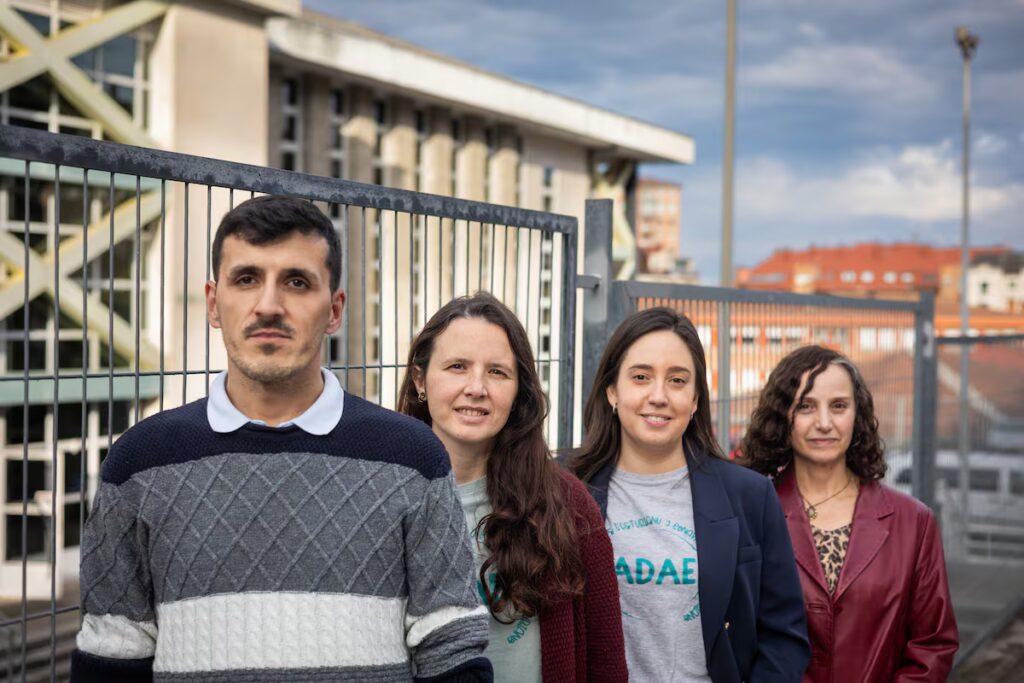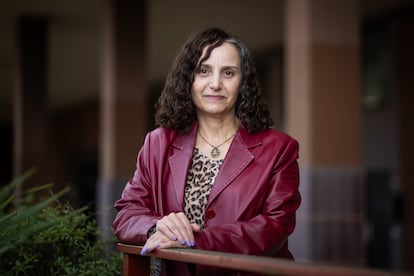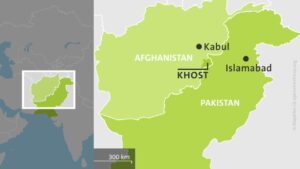
Claudia Menéndez, 32 years old, is an Asturian language teacher in Cancienes, in the center of the Principality. It is not, he admits, the typical bucolic Asturian town. But she likes it. The school is the same one where his parents studied, and the municipality is part of the municipality where his grandparents still live. The same thing happened in his family as in many other places in Spain with minority languages. His grandparents spoke it. “And they continue to do so, except when you put a tape recorder or a cell phone in front of them, then they change register,” says Menéndez. But in the midst of Franco’s regime they decided not to teach it to their children. “They understood that what they spoke was Spanish, but badly. And that they had to teach their children to speak well, as they say.” The Asturian disappeared from his family for a generation, and returned, now in democracy, with her, who also decided to dedicate himself to teaching a language that today more than 25,000 students study in the schools and institutes of the Principality.
Menéndez likes the job, but soon discovers that a sort of curse hangs over it. No Asturian teacher can get a permanent job, because specialty posts cannot be called, so they are condemned to wander from school to school, sometimes until the day of retirement. “They ask us for the same requirements, the same university education as others. But we don’t have our own places, and if we compete for a competition in another specialty, experience counts for half. I’ve been working for seven years and have attended seven different schools. And there are those who have been like this for decades”, he denounces.
Now, more than a hundred teachers – most of them relatively young women –, grouped in the Association of Teachers of Asturianu and Eonaviego/Gallego-asturiano, have rebelled against this situation and launched a campaign, meeting with unions, political parties and public representatives to demand a solution. Menéndez is its president.
The regulatory mess that keeps the 332 Asturian teachers active this year as perpetual interim teachers has two causes. First of all, the language enjoys legal protection in the territory, but not official status. The left-wing parties have tried without success, because the right-wing parties are against it and the modification of the Statute of Autonomy requires a three-fifths majority in the autonomous Parliament. Secondly, that state regulations are rigid and only allow teaching positions belonging to a fixed list of specialties (mathematics, philosophy, physics and chemistry, Portuguese…), as well as those that correspond to a co-official language in the respective autonomous community.
The Ministry of Education, directed by the PSOE, assures, through a spokesperson, that it will do “everything in its power” so that the Asturian specialty is created and the teaching staff can stabilize. To achieve this goal, they asked the Ministry of Education to amend its regulation to allow, in addition to the case of co-official languages, to offer places for languages legally protected in a territory (such as Asturian) that are part of the curriculum of the said autonomous community. The ministry, also led by the PSOE, however, excludes him. “The call for statutory reform is still valid. It is up to Asturias to decide whether to do it or not. It is not the responsibility of the State or the Ministry of Education”, concludes a spokesperson.
A shocking problem arising from the precarious situation in which the group of Asturian teachers finds themselves is that the legislation governing all teachers establishes that their merits are updated when there is an opposition process. «And in our case, since there are no competitions, we cannot update them. It only matters when you entered the stock market. So there are people who have entered once, they haven’t taught for 20 years, they work on something else, and if this year they want to teach, they go ahead of all of us who work, who have been training for a long time…”. The paralysis of the stock market also makes it difficult to orient oneself on the real position that each individual occupies and gives rise to some painful situations. “There are people on the stock exchange who are retired. Or even dead, because the deceased are not even removed, unless expressly requested by a family member. Some colleagues recently told me that they get goosebumps every time they call us and see that a colleague, who died very young, continues to appear with them in the lists.”
Asturian began to be taught in schools on a pilot basis in 1984. Since then, it has slowly expanded its presence in the Principality’s education system to over 25,000 students, between the second cycle of nursery school and high school. The subject is optional. And its demand varies greatly between levels and between public schools (the majority in the Principality) and private schools. The largest occurs in public preschool and primary schools, where just over half of students study it. This year Asturian has also been implemented in the Official Language School.
Tongue health
There is various news on the health of the Asturian. In 2022, the INE published a survey on language use that was controversial in Asturias because it did not ask citizens whether they spoke Asturian well, as it did in communities with a co-official language, and despite this, 2.8% of respondents recorded the language spontaneously. And this percentage was reported in the media, giving the impression that its use was negligible. Xosé Antón González, president of the Academia de la Llingua Asturiana, points out that according to the third sociolinguistic study published by his entity (in 2018, the next one will be published in 2028), 25% of the Asturian population, around 250,000 people, “master the four fundamental skills of the language: understanding, speaking, reading and writing”. This does not mean, adds González, that they put them into practice regularly, but that they are capable of doing so.

Two forces operate in Asturias, continues the professor from the University of Oviedo. On the one hand, the push for recovery after the end of the dictatorship. The language entered the educational system, and to a certain extent a normative dictionary, grammatical and spelling rules were published in the media, and today “music, poetry, fiction and theater in Asturian of a quality that has no historical precedent” is created. At the same time, however, like other minority languages, Asturian must face “the weight of the great languages of international communication, Spanish and English”, and the disappearance of the rural world that has served as a refuge for centuries. So, González says, his formal education in the education system is crucial to his future. And the great precariousness of the teaching staff, whose constant rotation prevents them from “putting an educational project into practice” and from getting to know and establishing solid bonds with their students, represents a great obstacle.
Paz García, 57, began teaching Asturian to public employees in classes organized by municipalities in the 1990s. In 2000, at 32, the age her colleague Claudia Menéndez is today, she became an interim secondary school teacher. And only towards the end of his career did he achieve some continuity (it took him six years) at an institute in the mining basin. “When I started working,” he laments, “I didn’t think I would end up retired like this.”





